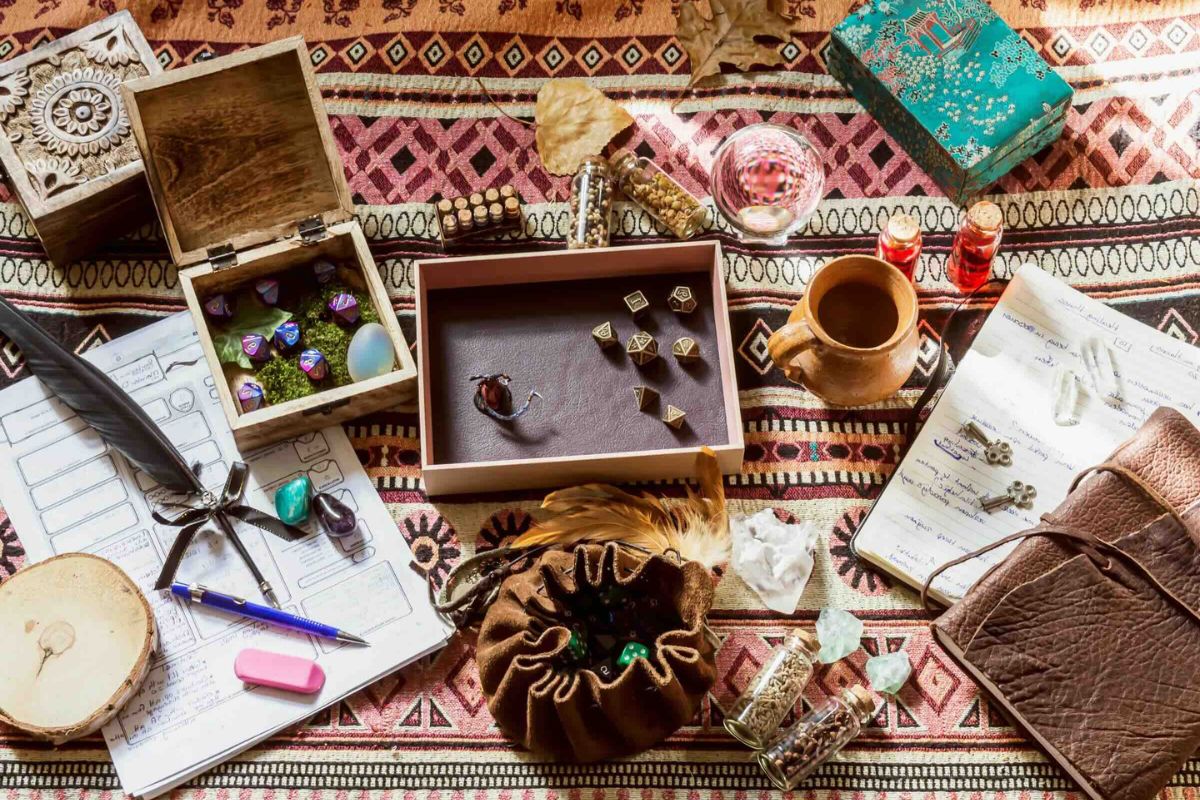
Tabletop role-playing games (TTRPGs) have captured the imaginations of millions worldwide. From the classic Dungeons & Dragons to indie gems like Blades in the Dark, these games offer endless adventures. But what makes them so special? TTRPGs blend storytelling, strategy, and creativity, allowing players to become heroes, villains, or anything in between. Whether you're a seasoned dungeon master or a curious newbie, there's always something new to learn. Did you know that the first TTRPG was created in the 1970s? Or that these games can improve problem-solving skills? Buckle up as we dive into 26 fascinating facts about TTRPGs that will surprise and delight you!
Key Takeaways:
- TTRPGs, like Dungeons & Dragons, are games where players describe their characters' actions and make decisions based on rules. They encourage creativity, problem-solving, and social skills while offering diverse and immersive experiences.
- TTRPGs have a rich history and diverse community. They inspire popular culture, offer benefits beyond entertainment, and hold exciting potential for the future, including virtual reality and increased diversity and inclusion.
What is a TTRPG?
A Tabletop Role-Playing Game (TTRPG) is a form of role-playing game where players describe their characters' actions through speech. Players determine the actions of their characters based on their characterization, and the success of these actions is often determined by a set of rules and guidelines. Let's dive into some fascinating facts about TTRPGs.
-
Origins: TTRPGs originated in the 1970s with the release of Dungeons & Dragons (D&D), created by Gary Gygax and Dave Arneson.
-
Dice Variety: TTRPGs often use a variety of dice, not just the standard six-sided ones. Commonly used dice include d4, d8, d10, d12, and d20.
-
Character Sheets: Players use character sheets to keep track of their character's abilities, skills, and inventory.
Popular TTRPGs
Many TTRPGs have gained immense popularity over the years. Here are some of the most well-known ones.
-
Dungeons & Dragons: The most famous TTRPG, D&D has been a cultural phenomenon since its inception.
-
Pathfinder: A spin-off of D&D, Pathfinder offers a more complex and detailed rule system.
-
Call of Cthulhu: Based on the works of H.P. Lovecraft, this game focuses on horror and investigation.
TTRPG Mechanics
The mechanics of TTRPGs can vary widely, but they all share some common elements.
-
Game Master (GM): The GM, or Dungeon Master (DM) in D&D, is the person who narrates the story and controls the game world.
-
Role-Playing: Players immerse themselves in their characters, making decisions and reacting to the game world.
-
Combat: Many TTRPGs include combat mechanics, where players and enemies take turns attacking and defending.
TTRPG Communities
The TTRPG community is vast and diverse, with many ways to get involved.
-
Conventions: Events like Gen Con and PAX host thousands of TTRPG enthusiasts every year.
-
Online Platforms: Websites like Roll20 and Fantasy Grounds allow players to connect and play TTRPGs online.
-
Podcasts and Streams: Shows like Critical Role and The Adventure Zone have brought TTRPGs to a wider audience.
Benefits of Playing TTRPGs
Playing TTRPGs can offer numerous benefits beyond just entertainment.
-
Creativity: TTRPGs encourage players to think creatively and come up with unique solutions to problems.
-
Social Skills: Players develop teamwork and communication skills by working together to achieve their goals.
-
Problem-Solving: TTRPGs often present complex challenges that require critical thinking and strategy.
TTRPG Terminology
Understanding the terminology used in TTRPGs can enhance your gaming experience.
-
NPC: Non-Player Characters are controlled by the GM and populate the game world.
-
Campaign: A series of connected game sessions that tell a larger story.
-
Module: A pre-written adventure that GMs can use to run a game.
Creating Your Own TTRPG
Many players enjoy creating their own TTRPGs or modifying existing ones.
-
Homebrew: Custom rules or content created by players to enhance their game.
-
World-Building: Designing the setting, history, and cultures of the game world.
-
Playtesting: Trying out new rules or content to see how they work in practice.
TTRPGs in Popular Culture
TTRPGs have made their mark on popular culture in various ways.
-
Stranger Things: The hit TV show features D&D prominently in its storyline.
-
Video Games: Many video games, like Baldur's Gate and Divinity: Original Sin, are inspired by TTRPG mechanics.
-
Books and Movies: Numerous novels and films have been influenced by TTRPGs, such as the Dragonlance series.
The Future of TTRPGs
The future of TTRPGs looks bright, with new developments and innovations on the horizon.
-
Virtual Reality: VR technology could bring a new level of immersion to TTRPGs.
-
Diversity and Inclusion: The TTRPG community is becoming more inclusive, with games and content that reflect a wider range of experiences and perspectives.
The Final Roll
Tabletop role-playing games (TTRPGs) offer a world of creativity, strategy, and camaraderie. From Dungeons & Dragons to Pathfinder, these games have captivated millions. They’re not just about rolling dice; they’re about storytelling, problem-solving, and teamwork. Whether you're a seasoned player or a curious newbie, there's always something new to learn and enjoy.
TTRPGs have evolved over the years, incorporating technology and expanding their reach. Online platforms and virtual tabletops have made it easier than ever to connect with fellow adventurers. The community is welcoming, diverse, and always ready to share tips and tales.
So, grab your dice, gather your friends, and dive into the next adventure. The world of TTRPGs is vast and full of possibilities. Happy gaming!
Frequently Asked Questions
Was this page helpful?
Our commitment to delivering trustworthy and engaging content is at the heart of what we do. Each fact on our site is contributed by real users like you, bringing a wealth of diverse insights and information. To ensure the highest standards of accuracy and reliability, our dedicated editors meticulously review each submission. This process guarantees that the facts we share are not only fascinating but also credible. Trust in our commitment to quality and authenticity as you explore and learn with us.
